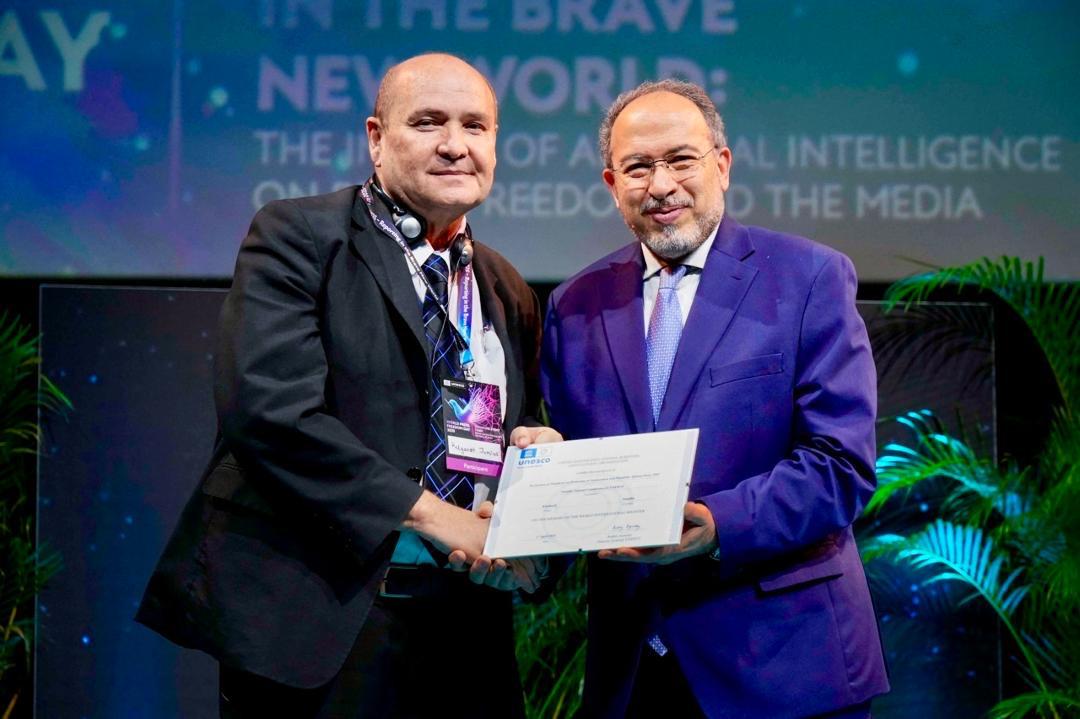HARARE – Zimbabwe central governor Gideon Gono on Thursday offered a higher exchange rate to nationals abroad when repatriating foreign currency home and vowed to cut inflation to single digits by the end of 2006.
In his third monetary policy review statement for 2004, Gono also moved to control foreign currency inflows from the fast-growing platinum sector and offered a higher support price for gold producers. An acute shortage of foreign currency is one of the major consequences of an economic crisis which critics blame on the policies of President Robert Mugabe’s government and which have seen the inflation rate soar to one of the highest in the world.Annual inflation was 251,5 per cent in September.In recent weeks the Zimbabwe dollar has been trading at around 5 600 to the US unit against an official rate of 824 at foreign currency auctions introduced in January in an attempt to snuff out a thriving black market.The Reserve Bank has offered the same rate to nationals living outside the country to persuade them away from the informal market, where the Zimbabwe dollar plunged to 7 000 late last year.”In order to further promote foreign currency remittances …the diaspora floor price of foreign exchange will be managed between the current auction rate of around 5 600 and 6 200,” Gono said.To gather more foreign currency into the country, Gono said the Reserve Bank would abolish offshore accounts for platinum producers operating in the country and compel them to channel their earnings through locally-held accounts.Platinum has emerged as a major potential foreign currency earner for Zimbabwe, which holds the world’s second largest deposit of the metal after South Africa.Gono said the central bank would hike its buying price for gold from local producers, whose deliveries of the key export earner produced US$210 million over the last nine months compared to $117 million during the same period in 2003.He vowed to continue fighting inflation, saying a prevailing tight monetary policy could see the annual rate decelerate to 150 to 160 per cent by year-end from a previous forecast of 200 per cent, after peaking at 623 per cent in January.Gono said troubled banking institutions which the central bank says have fallen victim to poor corporate management would be incorporated into a new group called the Zimbabwe Allied Banking Group in which both the government and the institutions’ debtors would own shares.The central bank has placed nine institutions under curatorship over the past year to protect depositors’ funds after finding them to be under-capitalised and in an unsound financial position. -Nampa-ReutersAn acute shortage of foreign currency is one of the major consequences of an economic crisis which critics blame on the policies of President Robert Mugabe’s government and which have seen the inflation rate soar to one of the highest in the world.Annual inflation was 251,5 per cent in September.In recent weeks the Zimbabwe dollar has been trading at around 5 600 to the US unit against an official rate of 824 at foreign currency auctions introduced in January in an attempt to snuff out a thriving black market.The Reserve Bank has offered the same rate to nationals living outside the country to persuade them away from the informal market, where the Zimbabwe dollar plunged to 7 000 late last year.”In order to further promote foreign currency remittances …the diaspora floor price of foreign exchange will be managed between the current auction rate of around 5 600 and 6 200,” Gono said.To gather more foreign currency into the country, Gono said the Reserve Bank would abolish offshore accounts for platinum producers operating in the country and compel them to channel their earnings through locally-held accounts.Platinum has emerged as a major potential foreign currency earner for Zimbabwe, which holds the world’s second largest deposit of the metal after South Africa.Gono said the central bank would hike its buying price for gold from local producers, whose deliveries of the key export earner produced US$210 million over the last nine months compared to $117 million during the same period in 2003.He vowed to continue fighting inflation, saying a prevailing tight monetary policy could see the annual rate decelerate to 150 to 160 per cent by year-end from a previous forecast of 200 per cent, after peaking at 623 per cent in January.Gono said troubled banking institutions which the central bank says have fallen victim to poor corporate management would be incorporated into a new group called the Zimbabwe Allied Banking Group in which both the government and the institutions’ debtors would own shares.The central bank has placed nine institutions under curatorship over the past year to protect depositors’ funds after finding them to be under-capitalised and in an unsound financial position. -Nampa-Reuters
Stay informed with The Namibian – your source for credible journalism. Get in-depth reporting and opinions for
only N$85 a month. Invest in journalism, invest in democracy –
Subscribe Now!










